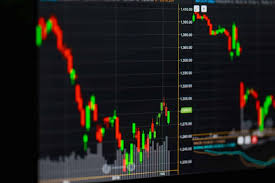
In the world of Forex trading, one of the best ways to hone your skills and build confidence is through demo trading forex Trading Broker KW. This practice account allows traders to experiment with strategies and understand the mechanics of the trading environment without risking real financial assets. In this article, we will explore the fundamental aspects of demo trading in Forex, its benefits, and some tips for making the most of your demo trading experience.
What is Demo Trading?
Demo trading refers to the use of a practice account provided by a brokerage firm to simulate real-time trading conditions in the Forex market. Traders can execute trades with virtual currency, allowing them to experience trading without any financial commitment. Demo trading platforms replicate the trading interface, offering access to real-time market data, charts, and tools, enabling users to practice strategies in a risk-free environment.
Benefits of Demo Trading in Forex
1. No Financial Risk
The most significant advantage of demo trading is that it allows traders to learn without the fear of losing money. This enables beginners to explore various strategies, tools, and techniques without the emotional burden that comes with real-money trading.
2. Learning the Trading Platform
Every trading platform has its unique features and tools. Demo accounts give traders an opportunity to familiarize themselves with the interface, enabling them to navigate comfortably when they transition to a live trading environment.
3. Understanding Market Dynamics
Demo trading provides the chance to understand how market conditions affect prices and trading strategies. Traders can observe how news releases, market sentiment, and economic indicators influence currency pairs without the risk of monetary loss.
4. Testing Trading Strategies
Whether you are a beginner or an experienced trader, demo accounts are excellent for testing new strategies. Traders can modify their approaches based on the performance of their demo trades, making adjustments without the pressure that comes from real stakes.

5. Building Confidence
Two essential components of successful trading are skill and confidence. By using a demo account, traders can build their confidence through practice, learning how to manage emotions like fear and greed, and developing the patience necessary for success.
How to Maximize Your Demo Trading Experience
1. Treat it Like a Real Trading Account
Many traders fall into the trap of treating demo accounts less seriously than live accounts. To maximize your learning experience, approach your demo trading with the same discipline and seriousness you would apply in real trading.
2. Set Clear Objectives
Before you start demo trading, define your goals. Are you looking to develop a specific strategy, familiarize yourself with technical indicators, or build a trading plan? Setting clear objectives will keep your practice focused and productive.
3. Keep a Trading Journal
Maintaining a trading journal is a crucial practice that many traders overlook. Documenting your trades, strategies, and emotions will help you identify patterns in your decision-making and improve your trading strategy over time.
4. Explore Different Strategies
Demo accounts are invaluable for exploring various trading strategies. Whether it’s day trading, swing trading, or scalping, use your demo account to test the effectiveness of different approaches and determine which aligns best with your trading style.
5. Review and Reflect

After spending time in your demo account, take the time to review your performance. Analyze what went well, where you went wrong, and how your strategies can be improved. Reflection is key to continuous improvement in trading.
Common Pitfalls to Avoid in Demo Trading
1. Trading Too Aggressively
Since there’s no real financial risk, traders often become too aggressive in their trades. This can lead to developing poor habits that can carry over into real trading situations. Practice patience and caution, as if you were trading with real money.
2. Overconfidence
Success in a demo account can instill a sense of overconfidence. It’s important to remember that market conditions may change drastically when you move to a live environment. Stay humble and approach real trading with caution.
3. Not Simulating Real Trading Conditions
Many traders make the mistake of not treating their demo trading account as a real trading account. Make sure to account for factors like slippage, spreads, and order execution to make your demo experience as realistic as possible.
4. Ignoring Risk Management
Even in a demo account, overlooking risk management strategies can lead to poor habits. Ensure you practice sound risk management by setting stop-loss orders and managing your virtual capital wisely.
Conclusion
Demo trading is a powerful tool for anyone looking to succeed in Forex trading. By offering a risk-free environment to practice and refine trading skills, it lays the groundwork for transitioning to live trading. By making the most out of your demo account, setting clear objectives, and treating your practice with seriousness, you can build a strong foundation for a successful trading career. Remember that the skills and experience you gain in a demo account will be invaluable as you step into the live Forex market.

 by Angerfist
by Angerfist